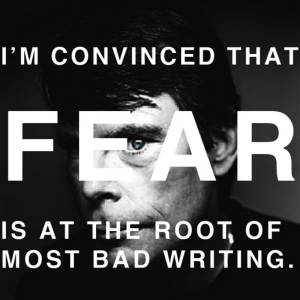Content That Connects: Part Deux
read part one
I’m in the business of content marketing. When I’m not doing that, I’m in the business of flash fiction, blogging, and brooding over my first novel. The long and short of it is that my life is words. Not always perfect words, but words nonetheless.
Something crucial about our business is also something I think is often missed. Content marketing is no different from any other kind of writing. It doesn’t take a marketing major or a journalist; it requires a writer. Good content marketing is storytelling, and storytelling is finding your angle and writing your story. That’s it.
Want to get better? Whether you’re starting out as a copywriter or launching your own website, here’s a continuation of writing content that connects. Here’s how to be a storyteller:
- Write
Don’t edit while you write. When you get hung up on perfecting every sentence, you’ll be paralyzed. Stop doing that. Get your thoughts down as quickly and efficiently as you can without considering whether they’re genius or barely coherent. Writing is not editing – the two tasks take two very different mindsets (and usually two different minds). - Write more
No one becomes a concert pianist by practicing once a week. Do you want to be good? Write at least 30 minutes a day. Do you want to be exceptional? Write whenever you can. - Find your critics
Seek them out. Learn to accept criticism and learn to use it to hone your craft. Critiques of writing are particularly painful because writing is a reflection of who we are. Those are my thoughts bled out on paper. Yes, but those are poorly constructed, trite thoughts bled out on paper. Listen, learn, reword, rework. - Easy does it
When you push too hard, your writing sounds… Well, it sounds like this: The ebony night oozed across the horizon. Coulda just said, “It got dark,” or, if you want to be poetic, “Night fell.” - Simplicity is key
I’m not just talking about marketing-type content, although that sort of writing makes me uncomfortable. In any writing, particularly writing that should be received as honest and relevant, keep it simple. Granted, some of this is a matter of taste (I prefer abrupt to finessed), and some writers have made a living a long, complex structure and five-dollah words (think Faulker and Conrad). But adjectives and adverbs are dirty. Mark Twain said so. Stephen King echoed him. Trust the masters.

I continued the previous list because it seems like something that needs saying. Writing isn’t magic; good writing isn’t reserved for great writers. One of my favorite books, Art and Fear, sums it up nicely: “Look at your work and it tells you how it is when you hold back or when you embrace. When you are lazy, your art is lazy; when you hold back, it holds back; when you hesitate, it stands there staring, hands in its pockets. But when you commit, it comes on like blazes.”
Sara Fraser – VP Content Strategy



